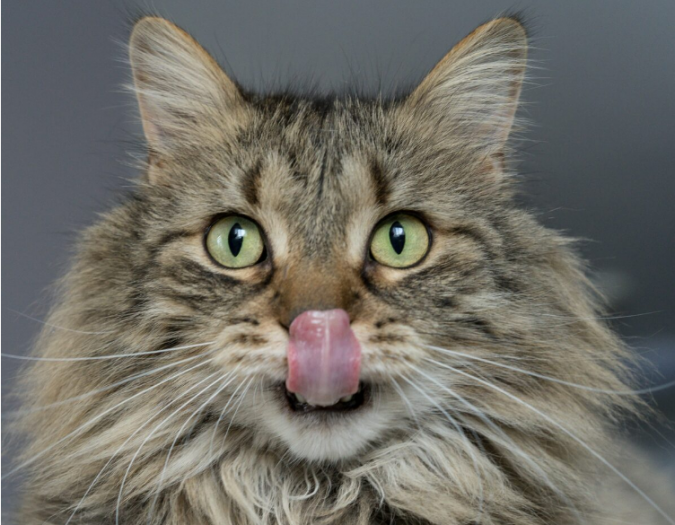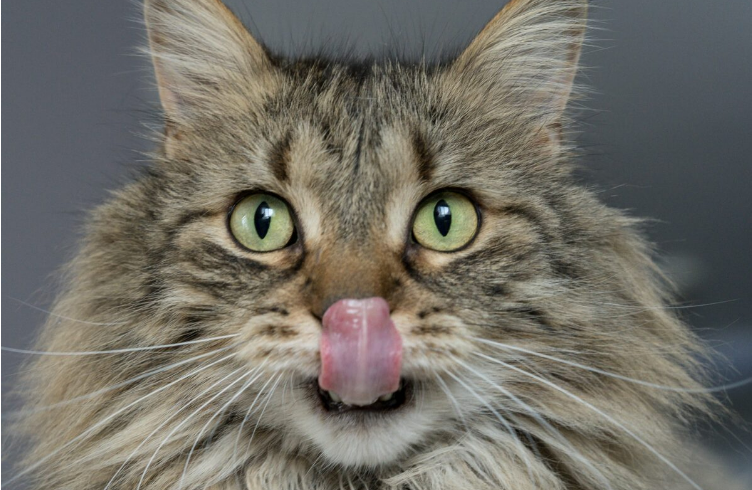MADISON – Cats are cats. Any cat lover knows they can transition from sweet and cuddly to stubborn and sassy with a mind of their own. That is especially the case when cats need to take medicine orally.
“Cats are incredibly difficult to medicate and there are just not a lot of good options,” says Amy Nichelason, a board-certified canine, and feline practitioner and assistant clinical professor at the University of Wisconsin-Madison School of Veterinary Medicine.
Because of this, pills sometimes must be forced into a cat’s mouth and throat – a method called dry swallowing. This approach can negatively affect the human-animal bond, increase inflammation of the esophagus and make cats more apprehensive about future treatment. Liquid forms of medication are typically easier to administer to cats, but their acceptance of these formulations depends on the flavor and type.
Hoping to contribute scientific evidence to this everyday predicament, Nichelason and colleagues recently studied ways to increase medicine acceptance among cats by comparing flavor acceptance in liquid medications. They published their findings in the Journal of the American Veterinary Medical Association.

Although general cat flavor preferences are known – for example, they tend to enjoy fish, liver and meat flavors in food and treats – this was the first study to examine the acceptance of differently compounded flavors for cat medications.
“Compounding is where we take a prescription drug and add or change its formulation. One reason to do this is to enhance compliance, meaning the animal will more readily accept the medicine,” Nichelason says. “In this case, we were compounding it to a liquid form.”
In the study, healthy pet cats received a variety of flavorings, like chicken, beef and fish, in unmedicated oil- and water-based formulas. Owners gave the cats different flavors at home and observed which their cats ate. However, no flavor stuck out as the favorite.
One interesting finding was that cats don’t like sweet flavors in water-based formulations. This surprised Nichelason and her peers because cats can’t taste sweetness.
“They lack the gene to taste sweetness, so it’s interesting that they actively disliked the sweet flavor,” she notes.
Another standout finding was that owners struggled to accurately guess which compounding flavor their cat would like. Owners’ perceptions of their cats’ preferences in the study were only moderately associated with flavor acceptance.
“They’d say, ‘oh, my cat will like chicken,’ and then the cat preferred fish,” Nichelason says.
Often, veterinarians use a client’s judgment to determine flavor preference for medication, but this study suggests that owners might not be the best predictors of what their cats will prefer.
Although no individual flavor stuck out as a winner overall, cats favored oil-based flavorings over water-based flavorings. There were some trends toward preferences within the oil-based flavorings (specifically, chicken and fish), but these findings were not statistically significant.
That said, cats remain picky. Sixty percent of cats didn’t like any of the oil-based flavors, compared to 85 percent that disliked the water-based flavors.
“It matches what we see in clinical practice: cats are just really hard to medicate,” Nichelason says.
Still, this study provides a steppingstone for improving cats’ compliance with medicine and guides what veterinarians should prescribe.
“The moral of the story is to try something that has the best odds of working,” Nichelason says. “What I took home from this as a veterinarian is that I should avoid sweet flavors and use oil-based flavorings when possible.”
Going forward, Nichelason and her colleagues plan to add typically unpalatable medications to the preferred oil-based compounding flavors or combinations of flavors and see how that alters cats’ acceptance. They will eventually look at compounded chewable formulas as well.
In the meantime, Nichelason offers a few general recommendations for lessening the stress of giving your cat medication: Try different formulations – chews, liquid, or tablets – based on what your cat likes. If you aren’t sure of their preference, many compounding pharmacies have unmedicated samples owners can try giving their cats before adding the medication.
Additionally, rewarding your cat after any medication with a treat or extra affection can reinforce a positive outcome. But being honest with your veterinarian is most important.
“If the formulation isn’t working and it is creating stress, let us know so we can work together to create a better medication plan,” Nichelason advises.
Hopefully, these efforts will collectively ease the challenges of medicating finicky felines for pets and people.
“Cats will be cats,” Nichelason concludes with a smile. “They want what they want; they’ll do what they want. They’re hard to predict.”






